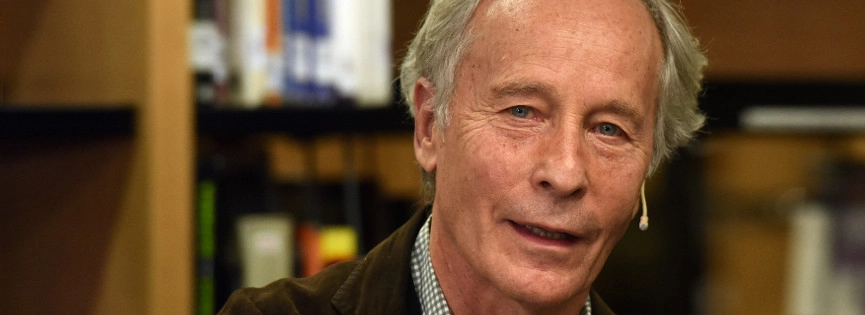Main content
Richard Ford 2016 Princess of Asturias Award for Literature

Richard Ford (Jackson, USA, 16th February 1944) graduated in Literature from Michigan State University in 1966. He began to study Law at the University of Washington in St Louis, but dropped out to pursue a Master’s of Fine Arts degree in Creative Writing at the University of California, Irvine (1970). In 1971, a scholarship from the University of Michigan enabled him to start writing his first novel, A Piece of My Heart (1976). He subsequently taught at Williams College, Massachusetts, and at the universities of Princeton, Harvard, Northwestern and Michigan. In 1981, he worked as a sports journalist for Inside Sports in New York until the newspaper folded, after which he became a full-time writer.
Considered by some the rightful heir to Hemingway, influenced –as he himself has acknowledged– by Faulkner and rated by Raymond Carver the best living writer in the USA, he has never accepted his work being classified as “dirty realism”, a branch of minimalism characterized by its tendency towards sobriety, precision and extreme frugality in the use of words in descriptions. Ford does admit, however, that this label has helped him become known in Europe. His characters are often ordinary people living conventional lives who find themselves entangled in complex situations. He has consequently been accused of writing pessimistic literature and narrating emotionless stories featuring desolate, hopeless characters. However, he argues that a writer is the fruit of his own experience and that the situations and emotions he is sensitive to become the material he works with. Besides the aforementioned novel, he has published The Ultimate Good Luck (1981); Wildlife (1990); the trilogy starring Frank Bascombe, a failed writer from New Jersey who first works as a sportswriter and then as a real estate agent (The Sportswriter, 1986, Independence Day, 1996, and The Lay of the Land, 2006); Canada (2012), received with great enthusiasm by the critics, who gave it an “all out ten”; and Let Me Be Frank With You (2014), four long stories told by Bascombe. He is also author of the collections of short stories and tales Rock Springs (1987), Women with Men (1997) and A Multitude of Sins (2002). The Essential Tales of Chekhov (1998), the essay Flowers in the Cracks. Autobiography and Literature (2012) and the complete works of Eudora Welty comprise some of his publications as an anthologist and editor. He also wrote the screenplay for the film Bright Angel (1990), directed by Michael Fields.
Officer of the Ordre des Arts et des Lettres (France), member of the American Academy of Arts and Letters and holder of honorary degrees from the Universities of Rennes 2 (France) and Michigan, he has received the New York Public Library Literary Lion Award (1988) and the Literature Award from the American Academy of Arts and Letters (1989 and 1997), among other distinctions. Independence Day earned him the Pulitzer Prize and the PEN/Faulkner Award for Fiction in 1996 and received the Andrew Carnegie Medal (USA, 2013) and Prix Femina (France, 2013) for Canada.
End of main content
